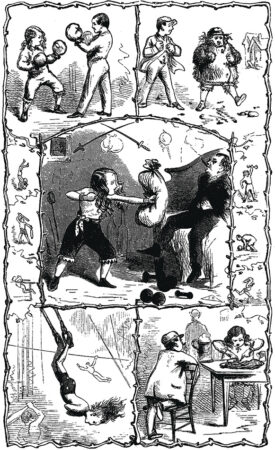In the last two years of his brief and stormy life, Robert Kennedy showed a remarkable ability to arouse extravagant political hopes. California grape-pickers came to look upon him as their savior. Rebellious youths saw in him a kindred spirit. Left-wing journalists, who think bankers rule America, believed that he would prove the glorious exception to the iron rule of capital.
Such hopes were all the more extraordinary because they rested on such fragile foundations. Most of what Kennedy had actually done in his life his most ardent admirers were heartily ashamed of. They hailed him as the harbinger of peace, yet a few years before he had been a Cold War bravo of an uncommonly bellicose kind. Some even spoke of his “conversion”: around 1966 he ceased to be the Kennedy they detested and became the Kennedy they wished him to be. By 1968 he was no longer a man but a sort of pure potentiality, the locus of hope itself.
But there are two impediments to the belief that Robert Kennedy had been the most promising politician of his age. The first is common sense, which holds that even as people change they remain recognizably the same. The second is our elementary political understanding. That the sharp alteration in Kennedy’s public character took place when it served him suggests—to put it mildly—that political calculation played a part.
Bobby was a narrow and surly young man of markedly illiberal views before becoming, many years later, someone different. Our faith in the metamorphosed Kennedy depends on leaving the political opinions of the unreconstructed Kennedy vague. But he virtually recommended the struggle against communism as a means of regenerating an allegedly flabby citizenry and of ridding our politics of “confusion” and “perplexities,” as he put it in 1961, the same year in which he urged his brother to put the government on a war footing and unleash his “emergency” powers to prosecute the struggle against communism in general and Cuba in particular.

His vision was of a free people “toughened” into a clenched fist, a free republic turned into an armed camp. Such vision reveals the repugnance for democratic politics and the disdain for the requirements of liberty that he manifested throughout his career: in his determination as attorney general to use and abuse electronic surveillance (apparently he “innocently” thought the FBI was using informers, not bugs); in his ambition to persuade the electorate by every device of cheap publicity that constitutional safeguards crippled government efforts to defeat the nation’s chief domestic menace, namely the Mafia; and in his attempts to impede one of the great grassroots movements in our history, the civil-rights campaign led by Martin Luther King Jr. His disdain for democratic politics not only never waned, it eventually became an important part of his later appeal.
Yet he did his best to make himself the tribune of America’s restive underclassmen, and has been witnessed delivering on campuses trite paeans to the “revolution of youth.” That revolution, Kennedy liked to say, had begun in America with the election of his brother at the youthful age of forty-three, surely the most trivial revolution in history. But that is what was truly singular about Robert Kennedy: He aroused extravagant political hopes while standing opposed to all that was best and promising in his day. He thought it a crime to “split” a party oligarchy whose power itself is a crime, and a virtue to protect it from a rebellious citizenry. He regarded grassroots movements as something for “professionals” to bring under control, and spent most of his adult life envisioning this republic turned into a hideous Sparta. He was a man estranged from the principles of a democratic republic, for as he calculated how to serve a corrupt party oligarchy he simultaneously offered compassion to its more conspicuous victims. Had he lived, there is no doubt that he would have restored public confidence in the Democratic syndicate, which for decades has betrayed every hope it aroused.
From “RFK Enshrined,” which appeared in the September 1978 issue of Harper’s Magazine.























































































